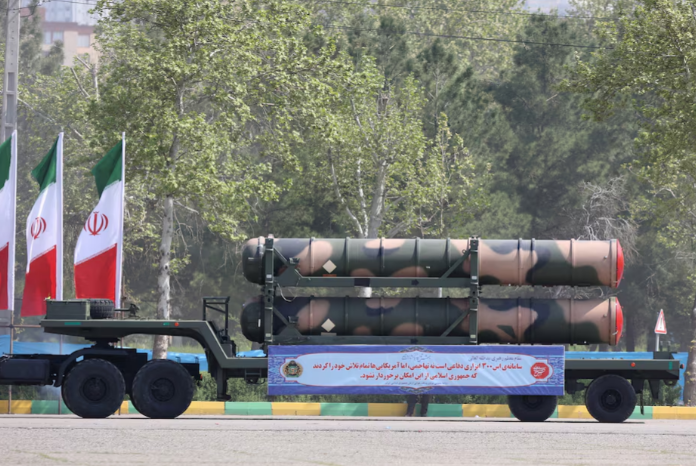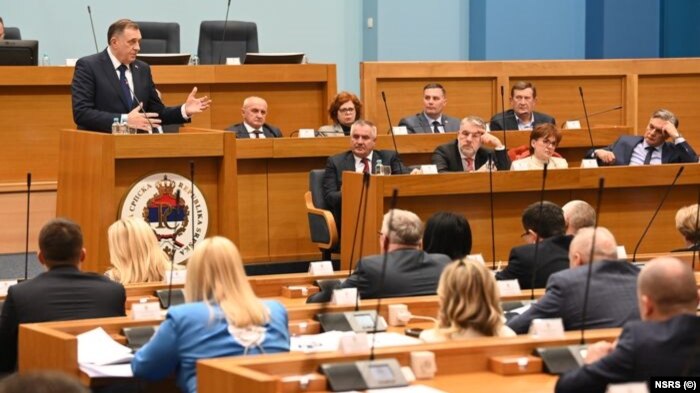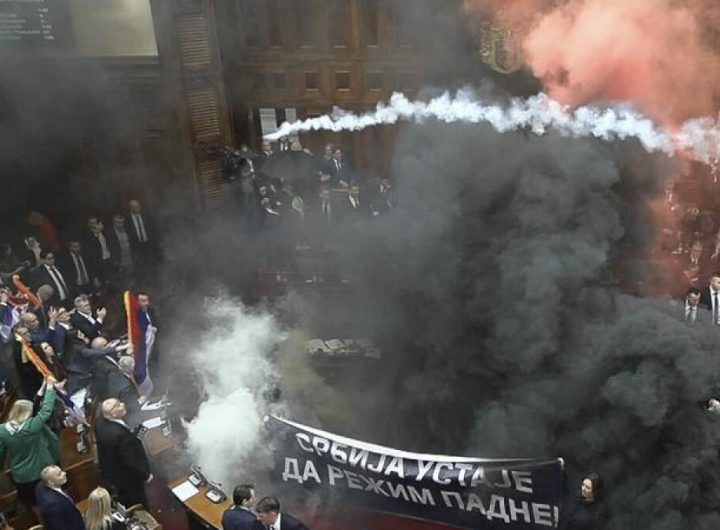
The publication of sensitive data for close to 600 thousand citizens of Albania has opened the topic if Russia is also implicated in this whole operation. It further opened the dilemma of the Russian presence in the field of financial consulting and quick loan business.
Towards the end of December 2021, initially through social networks, began to be distributed documents containing the monthly salaries of thousands of citizens employed in the public and private sector, including for well-known names. It is about the largest flow of information which sparked many debates in the public.
The case appears to be receiving an epilogue after police arrested four suspects in the scandal. Among the suspects is Endri Ikonomi, a bailiff who turned out to work for the company “Credit 2 All”. The company, which provides quick loans, is owned by businessman Oleg Viktorovic Boyko. According to official data, Boyko bought all the shares of the company in 2018 from the previous owner, a company based in Cyprus, an offshore country known as a tax haven.
Part Of The “Putin List”
The investment of the Russian businessman Boyko in the sphere of quick loans in Albania would not be a problem if he was not part of the list of the US Treasury Department, as part of the oligarchs that make up the circle of Vladimir Putin. In the group of 210 prominent Russians, known as the “Putin List”, are people who have raised and kept Putin in power. The Treasury Department has ranked Boyko 17th in the oligarchs’ group.
In addition to senior members of Putin’s cabinet, there is also Chelsea Football Club owner Roman Abramovich, a close friend of Boyko.
Boyko has a history almost identical to that of most oligarchs, who in the 1990s exploited the transition in Russia to make huge fortunes overnight. He was born in 1964 into a family of intellectuals from Moscow. He graduated from the Moscow Aviation Institute with a degree in Aircraft Radio Electronics and from the National Academy of Economy of the Government of the Russian Federation. He then received a master’s degree in Britain and the United States of America (USA). In the late 1980s, Boyko formed a cooperative to market computers and softwares. In the 1990s, the entrepreneur was engaged in various types of business: he imported fruit, financed a political party, and invested in the media. In 2000 Boyko established the Finstar Financial Group investment fund. In 2002 Boyko bought a stake in the Vulcan casino chain in Moscow, from which he founded Ritzio Entertainment Group. When the gambling business in Russia came to a halt, Boyko moved business outside of Russia – to Germany, Latvia, Croatia and Romania. In 2003, Finstar acquired a controlling stake in the Latvian commercial bank Baltic Trust. Together with Latvian partners Boyko founded the 4finance loan company. In 2015, Finstar announced the creation of the DFI (Digital Finance Initiative) group of companies specializing in digital lending businesses in emerging markets in Europe and Asia.
In addition to Albania, Boyko since 2016 owns the business of fast digital lending in Northern Macedonia. There are seven financial companies that three years ago decided to organize in an Alternative Financial Services Association of North Macedonia (AFD). Among the founding members is Boyko’s DFI. This company was established in October 2016 with an investment of 300 thousand euros. It is a well-known company in the local market with the brand for fast loans “Forza”. The other six have a vague ownership. According to documents obtained from the Central Registry of the RNM, the owners are individuals and companies from Russia, the former Soviet republics in the Baltic and Bulgaria. This has opened dilemmas whether Boyko is behind them. Especially when the founders of the two fast loan companies “Tigo Finance” and “Mogo Kredi” are associated with the name of the oligarch from Latvia, Aigars Kesenfelds, who is Boyko’s partner in the company 4finance. Through Kesenfelds, according to the center for investigative journalism Re:Baltica, Boyko has operated in Kosovo for some time through the company “Monego”, but the Central Bank in Pristina in 2019 has revoked his license.
The opening of financial companies for digital loans in RNM was made possible by the Law on Financial Companies, adopted at the end of 2010. At that time, the public experienced these companies as competition with banks. There are currently 32 financial companies in the register of financial companies published on the website of the Ministry of Finance. The first were registered and received work permits in 2011, while the last license was issued in December last year.
“Ripper” Of Poor Citizens
The number of these companies increases along with the loans given to mostly poor citizens. They offer the simplest terms for their loans, which amount from 50 to 2,000 euros. Usually the first loan is interest free if the borrower repays it on the agreed term. On the contrary, companies offer deferrals, but with this the borrower is forced to pay a high interest rate depending on the time of the delay, which can go over 20%.
Quick and easy loan marketing is spreading rapidly in the US throughout the year. According to the research portal theblacksea.eu, in 2015 Boyko opened a US-based subsidiary “4finance US Holding Inc”, registered in the tax haven of Delaware. However, this is not the first time the company has entered America. According to the research, 4finance has operated in the US market hidden in the interconnectedness of several companies. Loans are offered to Native American citizens. Boyko, according to the portal, has used Native American tribes because they have sovereign rights over their territory. Exercising this right, the tribes made a “sovereign decision” to become part of a short-term lending business to consumers via the Internet. This is seen in a document of the agreement signed between the Belknap and Chippewa tribes. The Black Sea finds that the documentation supports the theory that Boyko’s companies – 4finance and Tirona Limited – have been financing Native American operations since 2012.
The presence of Russian capital in third countries often goes through countries where it can be easily operated. Latvia, the Baltic states, the former Soviet republics and offshore countries (fiscal havens) are on the preferred list of Russian oligarchs who use these states to cover the origin of capital in countries where Moscow does not have a good image.
Writes: Xhelal Neziri – contributor to The Geopost from North Macedonia

 US charges Chinese hackers and government officials in a broad cybercrime campaign
US charges Chinese hackers and government officials in a broad cybercrime campaign  US Department of Defense: No changes planned for troops in Kosovo
US Department of Defense: No changes planned for troops in Kosovo  Dodik’s attack on institutions in Bosnia and Herzegovina with Moscow’s support
Dodik’s attack on institutions in Bosnia and Herzegovina with Moscow’s support  Russian missile experts flew to Iran amid clashes with Israel
Russian missile experts flew to Iran amid clashes with Israel  EU Calls Republika Srpska Law On ‘Foreign Agents’ A ‘Backwards Step’
EU Calls Republika Srpska Law On ‘Foreign Agents’ A ‘Backwards Step’  Chaos, clashes and smoke bombs at a session of the Serbian Parliament
Chaos, clashes and smoke bombs at a session of the Serbian Parliament